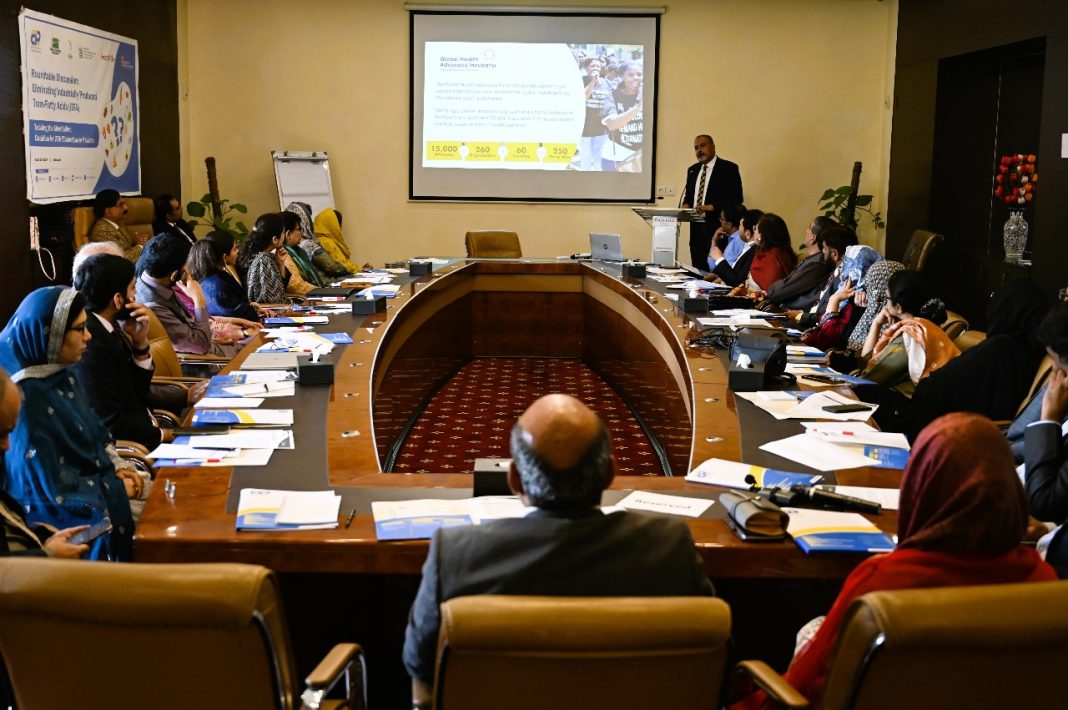By Adnan Rafique
ISLAMABAD:The Centre for Peace and Development Initiatives (CPDI) with the support of Global Health Advocacy Incubator (GHAI) convened a roundtable discussion aimed at tackling the health risks linked to the consumption of industrially produced trans fatty acids (iTFAs) in Pakistan, where Director General of the Pakistan Standards & Quality Control Authority (PSQCA), Ismat Gul Khattak reiterated the commitment to formulate 2% mandatory limit of iTFA across all foods to combat non-communicable diseases effectively..
The gathering addressed the urgent need for evidence-based mandatory policies to safeguard public health and mitigate the detrimental effects of excessive iTFAs consumption, a news release said.
During the roundtable, it was also discussed the imperative for Pakistan to adopt stringent mandatory limits of iTFAs in all food supplies to no more than 2% of total fats as recommended by WHO. Such a policy, if effectively implemented, holds the potential to save numerous lives and alleviate the strain on healthcare infrastructure.
National Coordinator, Nutrition and NFA, Ministry of National Health Services, Regulations and Coordination, Dr. Khawaja Masuood Ahmed emphasized the urgency of action. Key measures proposed included formulating a 2% iTFA limit in all foods and then banning partially hydrogenated oils (PHOs) to adopt the hybrid approach which best fit to Pakistan scenario. He also emphasized on fostering collaboration with the Pakistan Standards & Quality Control Authority (PSQCA).
Country Coordinator of GHAI, Munawar Hussain highlighted the necessity of adopting global best practices in iTFA regulation. Despite substantial progress globally, Pakistan remains in the less restrictive category in the WHO scorecard. Sixty-one countries have adopted the best practice policies, either to limit iTFA consumption or banned PHOs to save lives, or adopted hybrid approach where both policies were passed he further added.
He shared the case studies from regional and other countries who adopted best practice policies and emphasized on urgent steps to prioritize public health and bridge this gap.
While moderating the discussion, Syed Raza Ali, Project Coordinator, CPDI explained that Pakistan ranked 2nd highest in the WHO-EMRO region in iTFA consumption followed by Egypt. This alarming statistic correlates with a surge in multiple Non-Communicable Diseases (NCDs) and cardiovascular diseases (CVDs), imposing significant economic burdens on both individuals and the nation as a whole.
Dr. Saba Amjad, CEO of Heartfile, shared iTFA consumption trends in Pakistan and said that though there is some progress but yet iTFA is widely found in various food items.
The discussion concluded with an open session during which all stakeholders, including all food authorities, ministries of health and Science and Technology, and civil society working on similar issues, emphasized the immediate need for Pakistan to adopt best-practice policies, limiting iTFA content to less than 2% of fat in all food products. Strengthening enforcement mechanisms and adherence to standards are imperative to improve food governance and safeguard the population against the adverse health effects of iTFA consumption.




